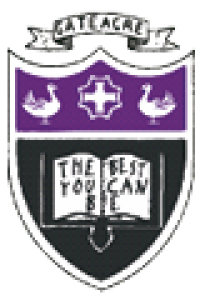Our Intent, Implementation & Impact
Intent: Our purpose and ambition
Through our Creative Faculty we aim to produce well rounded individuals, by promoting an adventurous and enquiring approach to our subjects, where students can grow and reach their full creative potential. We expect our learners to foster an industrious work ethic that allows them to explore a range of approaches independently. Through this students become confident in developing their own ideas and therefore present personal and imaginative outcomes. Our carefully sequenced curriculum nurtures skills, develops knowledge & understanding and enhances experiences. We naturally promote confidence building, by allowing students to make considered decisions throughout their work in visual and tactile forms. We urge students to take an analytical approach so that they understand methods and processes, within their own work and that of others. Our subjects encourage the refinement of ideas, so that learners understand how to reflect and develop their creative thinking. In food studies, we actively encourage students to consider healthy lifestyles. Our faculty believes that by developing personal expression, our students are able to communicate their feelings, thoughts and emotions through their ideas. We aim to prepare our students for a future in the creative sector, by raising awareness of progression routes and possible careers.
The creative curriculum allows students to celebrate their success. From this our students benefit from real a sense of achievement, which in turn, leads to improved efforts and the desire to progress further. We strive to produce independent, self-motivated, curious, risk takers, who are appreciative, passionate and ambitious about what they do.
Implementation: Design, Pedagogy and Assessment
Sequencing
Each department has put thought and consideration into what is taught, when and why. Across the curriculum, challenge is high and staff scaffold to support learners as and where appropriate.
Building Blocks
Key strands and recurring themes are identified and revisited within each of the faculty’s domains. Core skills are built upon throughout the years to consolidate knowledge and understanding.
TEEP
All lessons are delivered using the TEEP cycle and the underpinning elements of good instruction. The faculty also implement other Science of Learning principles adapted from in house CPD sessions.
Retrieval Practice
Students are given the opportunity to revisit knowledge skills and understanding in our area. Interleaving is used throughout the curriculum. Questioning, Low
stakes quizzes and knowledge organisers also assist students.
Differentiation & Challenge
All students are challenged. Differentiation does not take the form of ‘bespoke’ worksheets. Difficult concepts are broken down, scafolded and modelled as and where appropriate to individuals needs.
Assessment & Feedback
Assessment is clearly focused and varies depending on purpose. Assessments are well planned. They feedback into teaching where appropriate. Feedback is focused and follows the whole school feedback policy.
Literacy & Numeracy
There is a focus on learning new concepts. Opportunities to develop literacy techniques using tier one and tier two vocabulary. Numeracy used as and where appropriate.
Cultural Capital and SMSC
Opportunities are planned for within all schemes of learning for students to advance their cultural and social capital and develop as individuals on a spiritual and moral level.
Linking Curriculum to Careers
Students are encouraged to build the skills that are required in the creative industry. There are opportunities to raise the awareness of possible progression routes and careers paths in the creative sector.
IMPACT: Attainment, Progress, Knowledge, Skills and Destinations
The impact of our curriculum will be assessed each year using the different types of data available to us. This data will include exams results analysis, examiners reports, emerging research, QA, student voice and staff voice. We also seek to collaborate with colleagues from different centres and keep up to date with the latest studies and contemporary events linked to our subjects.

